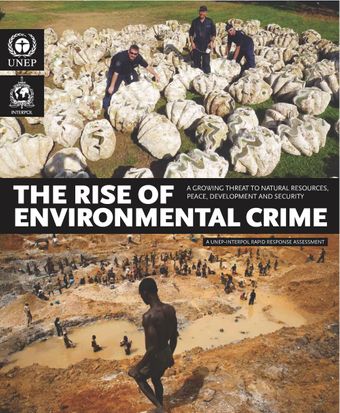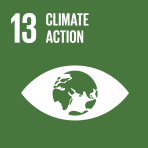- Home
- Books
- The Rise of Environmental Crime
- Chapter
Forestry crimes

- Author: United Nations Environment Programme
- Main Title: The Rise of Environmental Crime , pp 50-55
- Publication Date: July 2016
- DOI: https://doi.org/10.18356/d9147471-en
- Language: English
The involvement of transnational organized crime and advanced laundering is becoming more and more evident, even in forest crimes such as rosewood smuggling, illegal logging, or laundering of illegal tropical timber through “fraud” plantations, laundering the timber through paper mills and palmoil plantation front companies. In some countries as much as 90% of forest are leased as logging concessions. It is estimated that 62–86% of all suspected illegal tropical wood entering the EU and US arrives in the form of paper, pulp or wood chips, not as roundwood or sawnwood or furniture products, which have received the most attention in the past (see UNEP-INTERPOL, 2014). In 2015, WWF-Germany conducted a follow-up fibre- laboratory investigation of paper to verify possible presence of tropical wood in a total of 144 different paper products. Tropical timber was found in almost 20 percent, despite most of the companies having ruled out this possibility, further confirming the patterns reported by UNEP-INTERPOL in 2014.
-
From This Site
/content/books/9788269043419c008dcterms_title,dcterms_subject,pub_keyword-contentType:Journal -contentType:Contributor -contentType:Concept -contentType:Institution105


